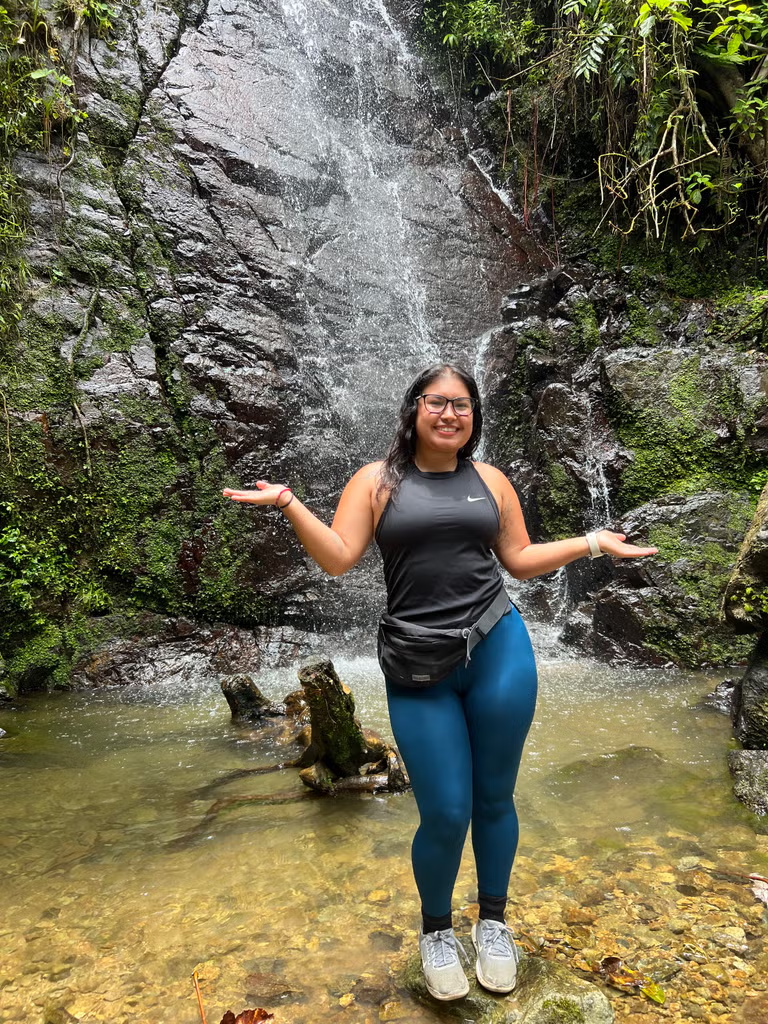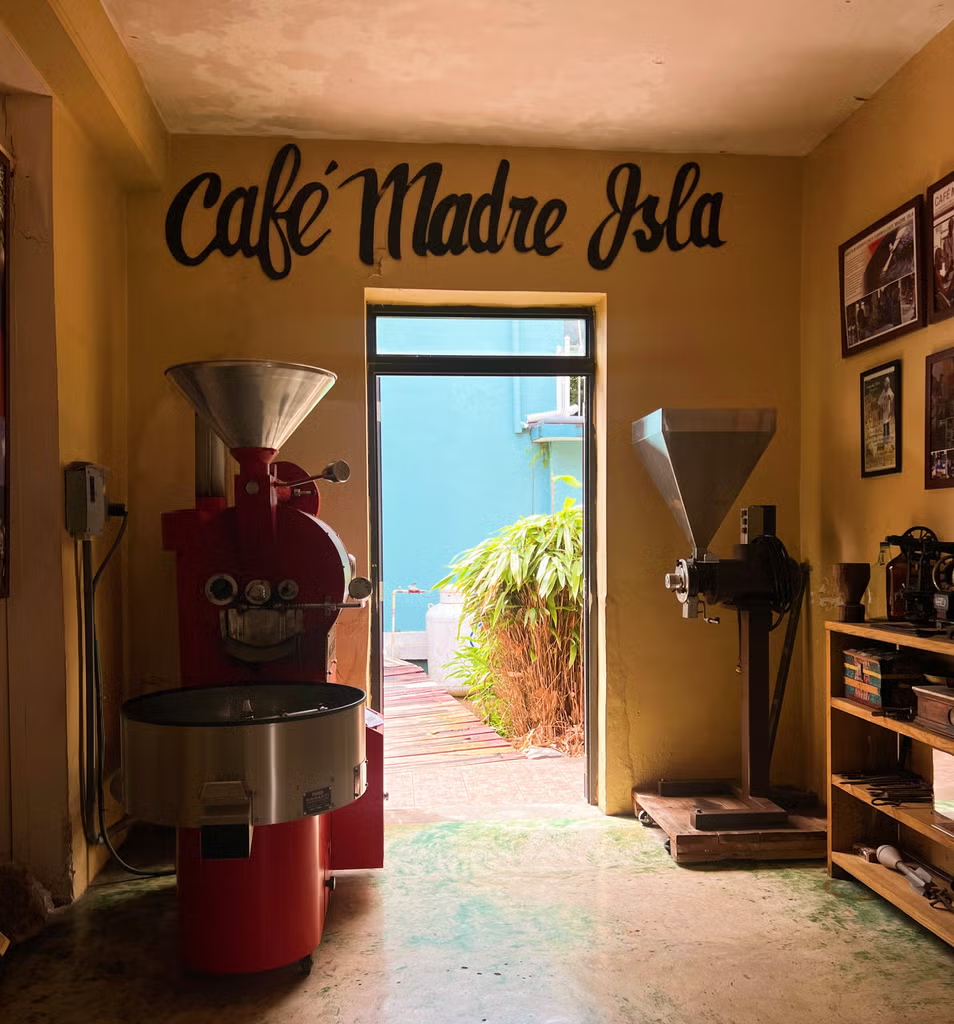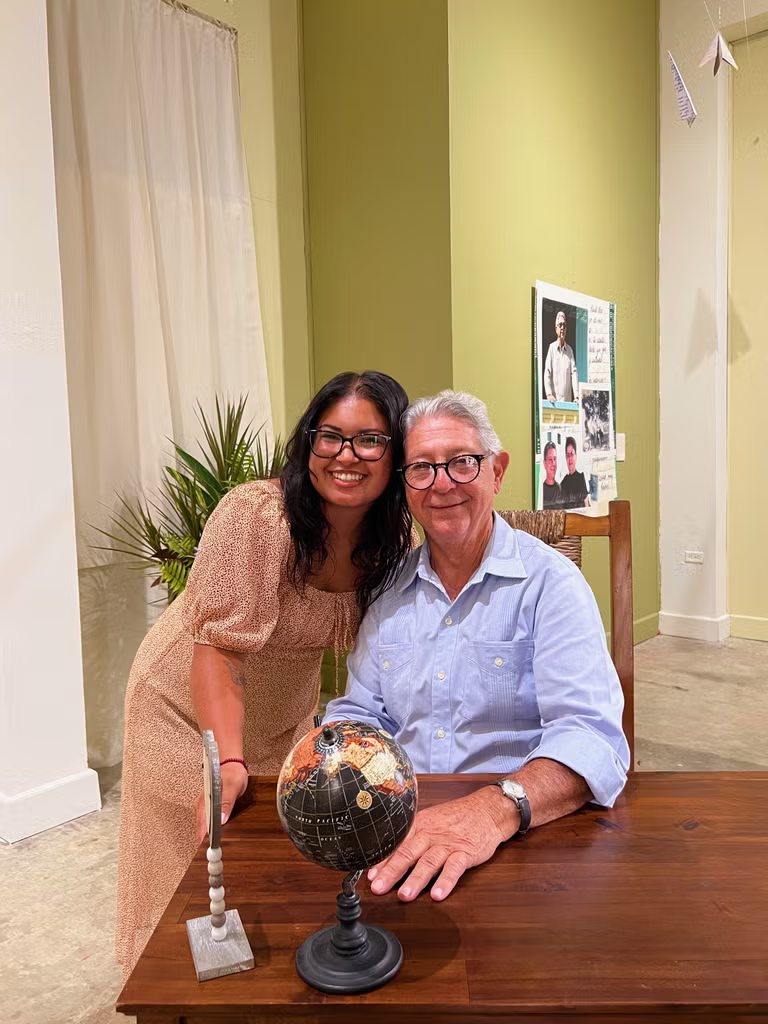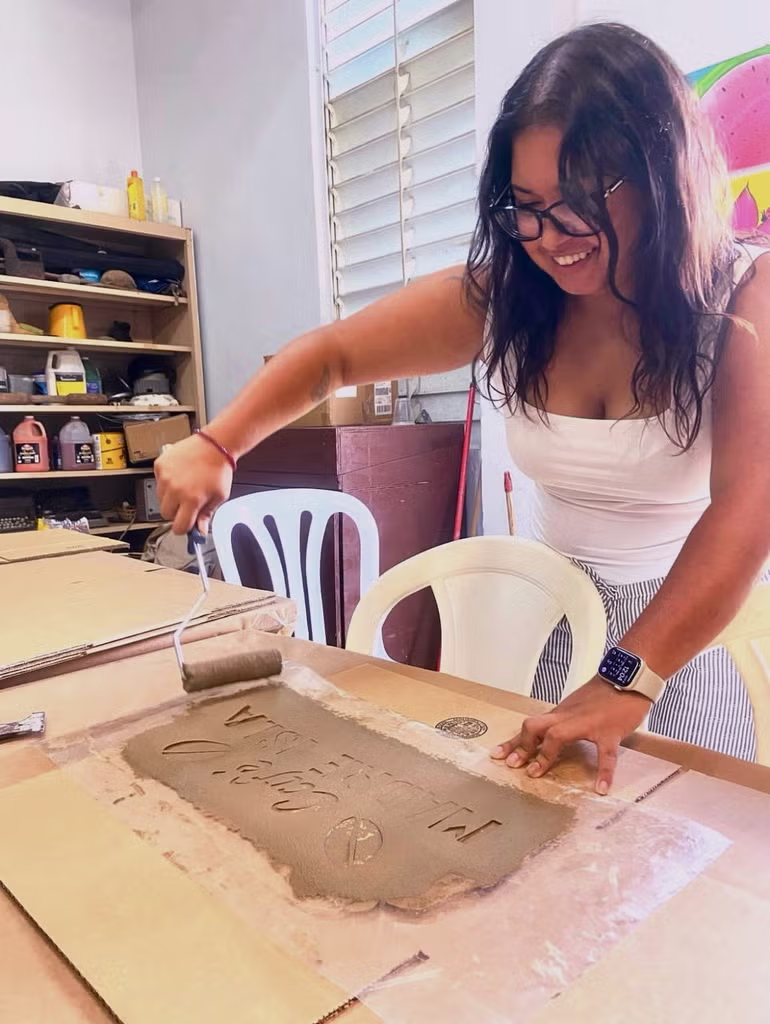In the mountains of Puerto Rico, Priscila Putzulu (CAS’25, LAS’26), a graduate student in SFS’s Master of Arts in Latin American Studies program, spent her summer at Casa Pueblo, a community-based organization dedicated to environmental justice and energy self-sufficiency. Fresh from the field, she reflects on her lifelong interest in environmental justice, her work at Casa Pueblo and how her coursework came to life.
Q. What first sparked your interest in environmental justice? How has that interest evolved over time?

A. My interest in environmental justice began when I was very young and was rediscovered toward the end of my senior year at Georgetown. Growing up on Long Island, NY, I was always drawn to marine life. I loved the ocean and its creatures. I had a deep interest in science and even started at Georgetown as a biology major. My favorite course was Foundations 2, which focused on ecology, and I later became a Student Academic Assistant for the course during my sophomore year.
Eventually, I shifted away from biology and changed my major to government, but I still wanted to find a niche. I began taking courses focused on international relations, particularly with a regional focus on Latin America. When I discovered the accelerated master’s path, I jumped at the opportunity and began enrolling in courses centered on development. I became especially interested in topics related to energy transitions and the environmental impact of extracting critical minerals, especially on indigenous territories. My love for environmental issues had always been there, but I truly embraced it more fully in recent years.
Q. What drew you to intern with Casa Pueblo? How does its mission align with your academic goals?
A. I first learned about Casa Pueblo through Professor Anna Deeny Morales, who was teaching my Culture and Power class for my master’s program. Instead of holding a regular class one day, she invited us to an event at the Mortara Center. I could only stay for about 30 minutes due to a prior commitment, but in that short time, I was completely drawn in by Casa Pueblo’s mission and fascinated by their work.

The intersection of renewable energy, economic sustainability, and education immediately resonated with me. For my master’s program, we’re required to complete an internship, and at the time, I was scrambling to find one. I had hoped to go to Brazil, but nothing was working out. I reached out to Professor Deeny, who connected me with Casa Pueblo’s director, Arturo Massol, and he helped make the internship possible.
Casa Pueblo’s mission can be summed up in three Spanish words: ciencia (science), cultura (culture) and comunidad (community), which together create cambio (change) and lead to victoria (victory). Their three pillars are essential to achieving their vision.
This framework aligns perfectly with my academic interests, as my studies in Latin American governance and development emphasize community-led, sustainable approaches to systemic challenges.
Q. Can you describe the work you did at Casa Pueblo? Are there any moments that stood out to you?
A. At Casa Pueblo, my main “assignment” was to complete independent research on the potential replicability of Casa Pueblo’s community-led solar energy model across the Caribbean, including interviews with staff and documentation of local implementation challenges and successes, culminating in a written deliverable. On a day-to-day basis, I led guided tours for visitors in English and Spanish through Casa Pueblo’s facilities—including the solar-powered theater, community radio station, music school, art gallery and butterfly garden—emphasizing its history, energy sovereignty model and economic sustainability through self-managed coffee production and distribution. In addition, I managed communications with guests and coordinated group bookings for educational talks, hikes in the Bosque Escuela and meetings with the founder. Additionally, through El Café Madre Isla, Casa Pueblo’s main source of economic self-sufficiency, I gained extensive knowledge about the coffee industry and its processes—from cultivation to preparation for packaging. I even learned how to operate the toasting machine and adjust temperatures to achieve the desired color and flavor profile. Towards the end of my time there, I conducted volunteer fieldwork for Northeastern University’s García Lab on coffee farms in Adjuntas, supporting research on agroforestry and secondary forest regeneration.
One moment that stands out to me is more of a culmination of moments—my morning coffees with the founder, Alexis Massol. I had never formed such a meaningful intergenerational connection before. Most of our conversations weren’t even about Casa Pueblo or his incredible accomplishments, but about life and his deep love for Puerto Rico. Those talks reminded me that environmental work is ultimately about people, place and the values we choose to live by.

Q. What new perspectives have you gained about energy independence through your internship experience? How might these apply to or contrast with energy struggles in other countries or regions?
A. Through my internship at Casa Pueblo, I learned lessons about energy independence that you simply can’t get from a textbook—only from speaking with people whose lives are directly impacted. I came to understand that energy insecurity is not just about losing light or internet access; for some, it is truly a matter of life and death. Casa Pueblo introduced me to the concept of electrodependientes—individuals whose medical needs require constant electricity, whether for respiratory therapy machines, insulin refrigeration or adjustable hospital beds in their homes.
Energy insecurity also disrupts education. When schools lose power, classes stop. Over time, students may lose interest in school, fall behind or even drop out because the curriculum cannot be delivered consistently. Beyond the electro-dependent, lives are lost in other ways—falls from rooftops while trying to fix satellite dishes, fires caused by candles and other preventable accidents.
One of the most striking things I learned is that despite Puerto Rico’s deep political divisions—whether about independence, statehood or the status quo—there is one issue that unites everyone: the need for energy independence. Hurricanes impact the entire island, and Hurricane María made it clear just how vulnerable Puerto Rico’s highly centralized grid is—if one part fails, the whole island can go dark. In an interview, a small business owner and community solar representative told me, “El sol es gratis” (“The sun is free”). In a time when many feel the government is not looking out for them, communities like Adjuntas are taking care of one another, ensuring that those most in need have access to solar power. This reinforced for me that energy sovereignty is not just an environmental or economic issue. It’s about dignity, survival and resilience.

Q. How does your work with Casa Pueblo connect to your studies in the Latin American Studies master’s program?
A. My work with Casa Pueblo connects directly to my master’s program because it brought to life the themes I study such as governance, sustainable development and community-led change in Latin America. In the classroom, I have examined the environmental and social impacts of extractive industries, the politics of development, and the challenges of energy transitions in the region. At Casa Pueblo, I saw how these theories translate into practice: a grassroots organization leveraging science (ciencia), culture (cultura) and community (comunidad) to achieve tangible change.
This experience deepened my understanding of how bottom-up initiatives can succeed where top-down policies fall short. It also gave me insight into the political dynamics of Puerto Rico, which, while unique in its relationship to the United States, shares many of the same environmental justice struggles faced by other parts of Latin America. Working at Casa Pueblo allowed me to bridge my academic training with real-world application, strengthening my commitment to pursuing sustainable, people-centered development across the region.